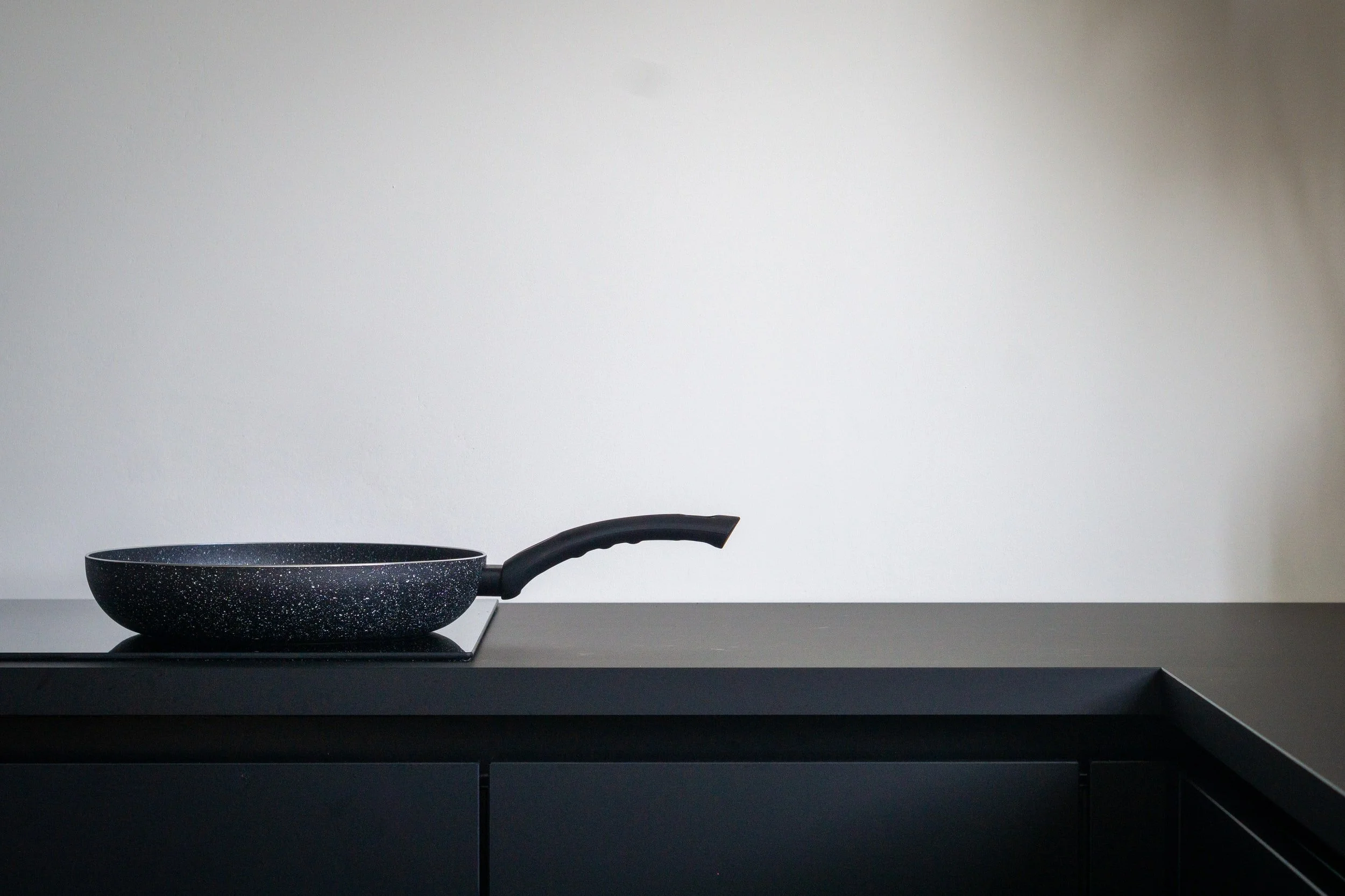Why Induction Cooking is Our Favorite
We hear it all the time, “gas cooks more evenly” and “gas offers the most flexibility”. But, did you know that your gas stove could be poisoning your home, generating unsafe levels of air pollution? Sure, while it may offer a bit more flexibility than electric cooking, I will not argue with that, there are other considerations to make. Additionally, when living on an island where power outages are not uncommon and can be expected to last several weeks at a time, we want to know that we can hold a match to the stove to cook a meal, right?
Gas cooks most evenly
False. Induction provides the evenest cooking distribution. Sorry, we had to start by busting that myth right away!
Gas offers the most flexibility
True. Professional chefs still prefer to use gas for the flexibility it offers. This includes instant on and off, precise temperature control, reliability, and higher temperatures.
Induction is the safest option for the home
True, true, true! Not only does the stove not get hot (the pot or pan will get hot, however) reducing the risk of burns, but gas stoves are creating unsafe interior air conditions in the home. The poor air quality that is created from a gas stove is a lifetime exposure that everyone should consider, especially families with small children.
That said, induction heating does have a risk as well, it is NOT safe if you have a pacemaker.
Induction cooking emits EMF (Electromagnetic Field) Radiation
True. But then, so does your television, microwave, standard electric range, and refrigerator.
First, what are EMFs? They are a type of radiation classified as a 2b carcinogen by the International Agency for Research on Cancer. This means that they are possibly carcinogenic to humans, but there is no conclusive evidence at this point after 40 years of continued studies that have still shown to be inconclusive.
This was all discovered in a study in the 80s that found a correlation between higher rates of cancer and proximity to power lines. These studies have continued over the years, looking at other devices as well such as cellular phones and to date, there is still no conclusive evidence that this radiation has a negative or lasting effect.
The good news? This is all standard controversy around electromagnetic fields similar to most things we fear, stemming from ignorance. In reality, while EMFs can be dangerous, the circumstances and amount in which we encounter them in our normal, daily routines are not.
For more information on EMFs and induction cooking safety, check out Is Induction Cooking Safe where “The Rational Kitchen” did in-depth research to determine the facts.
Induction Cooktops are Easier to Clean
We’ve all left the cooktop for a moment to handle the shooing of a fly out of the kitchen, attend to a crying baby, or you may be distracted by a good book while cooking (speaking from experience.) The soup boils over and cooks onto the stove. After several minutes of scrubbing, it seems to be a loss. There will always be a nagging burn spot on the stove.
What if the stove wasn’t hot though when it boiled over? Nothing would cook onto it! Another reason to love induction.
Induction Cooktops are More Energy Efficient
Induction cooking heats a cooking device by magnetic induction through electricity.
It works by having a coil of copper wire placed under the cooking pot and having alternating electric currents that pass through the copper wire. This allows induction to utilize 80-90% of its energy to the food in the pan. Gas converts 38% of its energy and electric converts about 70%. This makes induction the clear winner when it comes to efficiency!
Induction Cooktops Require Certain Cookware
Cast-iron, stainless steel, and enamel cookware will all do the trick, but if in doubt you can test this out by seeing if a magnet will stick to the bottom of your cookware. If it sticks, it should work!
Boiling on an Induction Cooktop is a bit like Magic
Okay, maybe not magic, but it sure felt that way to us!! Where gas ranges typically take 8-1/2 minutes to boil water, and electric cooktops take just under 6 minutes, the induction cooktop will boil water in three minutes!!! Here’s what’s really awesome though—some cooktops have a “rapid boil” feature where the water boils in 90 seconds. No joke! You can literally watch the water boil and it feels crazy fast!
Don’t believe us? Watch it below on YouTube (because we know that everything on YouTube is true, right?) Seriously though, we saw the rapid boil with our very own peepers!
So yeah, if the power goes out and we have induction we’re probably in trouble. UNLESS we have solar with a backup battery! I sense another article to be written…
Are you remodeling a kitchen? You might want to check our article on Prioritizing Kitchen Purchases and contact us to learn more about our design and build services.



Waldron Designs, LLC are passionate about designing spaces that are rooted in their context and are responsive to the natural environment. Are you ready to create sustainable permanence with your home?
GET IN TOUCH!